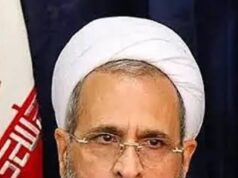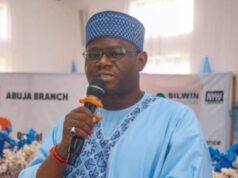
Speaker of the House of Representatives, Abbas Tajudeen has assured Nigerians that the legislative arm of the government will strictly monitor the implementation of the 2024 budget for their benefit.
“We must ensure that the budget when finally passed, meets the expectations of the people we represent. We must equally follow through the implementation process through our various oversight engagements.”
Speaker Abbas, who delivered a vote-of-thank today, November 29, after President Bola Tinubu presented the 2024 budget estimate to the joint session of the National Assembly, said that already, budget monitoring committees have been set up.
He said: “for the first time in our legislative history, the 10th House of Representatives created monitoring and evaluation committees to ensure effective implementation of the budget and Mr. President’s 8 Point Agenda among others.”
He told President Tinubu that administration’s renewed hope agenda is the philosophical foundation of the Legislative Agenda of the 10th House of Representatives.
“We have developed a detailed roadmap to ensure that the legislature supports, promotes, and oversees the strategic objectives of this government. A major thematic area of our Agenda is “economic growth and development.
“We recognise the role that parliament plays in shaping the economic trajectory and the role that we play in influencing the economic environment.
“Towards this end, the National Assembly will support the government’s policies and programmes targeted at alleviating poverty, economic restructuring and diversification, as well as general social sector reform and development.
Speaker Abbas said that the Legislative Agenda was on 14th November, 2023 unveiled to the Nigerian public.
“Mr. President, it is a well-known fact that millions of our constituents are living through incredibly difficult times.
“For this reason, they also look to the Tinubu-led government to provide quick and sustainable solutions. The antecedents of the President and your track record in governance inspire a lot of hope in Nigerians.
“Mr. President, it is for this reason that we cannot afford to fail Nigerians. If anyone can change the rot and chart a new course for Nigeria, IT IS YOU! I have no doubt whatsoever that we can measure up to the expectations of Nigerians through your visionary leadership and the commitment of the National Assembly.
“Accordingly, the budget laid before us today should not be seen as a mere financial document but a reflection of our collective resolve to address the most critical needs of our long-suffering citizens. In order to promote economic growth and development, the 2024 Budget should prioritise social welfare programmes to help reduce poverty and inequality.
“Equally important is job creation and youth empowerment in view of the large and ever-growing youth population. Failure to do this means failure to invest in our future.
“This Budget must also prioritise investment in education and healthcare, which is critical to human capital development and a more productive workforce. Infrastructure development is another critical area of importance, which is crucial for economic growth.
“The biggest challenge, however, is balancing these priorities within the constraints of available resources.
“In view of this and the related challenge of a high level of public debt, the National Assembly will ensure that the 2024 budget includes concrete strategies for sustainable debt management, including measures to increase revenue and control expenditure.
“Specifically, the focus should be on raising more revenue through tax reform, fiscal reform, subsidy reform, foreign exchange convergence, and centralised revenue collection. In our recent engagement with MDAs on the MTEF, we emphasised the need for revenue-generating agencies to double their targets to meet the N18 trillion revenue projected in the budget.
“Mr. President, the effectiveness and legitimacy of fiscal policies depend to a very large extent on public support. As the People’s House and in line with our Legislative Agenda, the House of Representatives will convene the first national citizens’ budget town hall to harness public input and opinion.
“We are convinced that this will increase transparency and accountability, improve policymaking, and increase trust in government.
“Public participation in the budgetary process has been shown to improve resource allocation and service delivery as well as a more stable and robust economy.
“By seeking input from citizens, we aim to understand their local needs and preferences better and allocate resources more effectively.
“Going forward, Mr. President, we will also work to institutionalise pre-budget engagement with the executive to further improve and hasten the budget process.
“The House has already commenced interface with MDAs through the Sectoral Debates to understand the challenges facing government agencies and identify areas for legislative intervention. “All of these efforts are geared towards ensuring that we provide the necessary legislative support to your administration’s renewed hope agenda.”
Speaker Abbas identified budget enactment, budget implementation and budget oversight as some of the challenges facing budgets in the country, saying that the gaps in the various stages of the budget process underscore the need for budget reforms, including altering relevant sections of the Constitution and existing laws to strengthen the budget process and transform the budget into an authentic tool for development.
“For this reason, I propose enacting a Budget Act to strengthen the budget process and promote development outcomes. This is a well-established practice in democracies across the world.”






